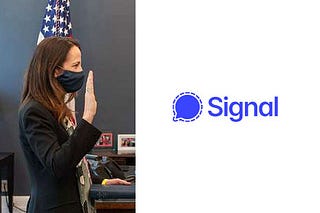

Hogan’s first months as Governor of Maryland were intensely chaotic. In April 2015, four months into his term, the state’s largest city, Baltimore, erupted in riots following the death of Freddie Gray. Baltimore’s mayor at the time, Stephanie Rawlings-Blake, literally went AWOL as the streets of the city erupted in violence directed at the police, at immigrant storekeepers, at civilian populations generally. Unflinchingly, Hogan moved his entire government apparatus from the capital city, Annapolis, to Baltimore. He walked the streets of the city, day and night, speaking with residents about anything they wanted to discuss, including police brutality. He brought in the Maryland National Guard to restore order, and he quelled the riots. He was the hero of Baltimore while the mayor was missing in action.
His governing was interrupted by an unexpected advanced stage cancer diagnosis of non-Hodgkin’s lymphoma in his sixth month as governor. He underwent a very public, very transparent treatment regimen in Baltimore at the University of Maryland hospital. He visited children in the hospital’s cancer ward. He governed remotely in an era well before Zoom meetings became the norm. And he continued to lead Maryland.
Larry Hogan undertook a trade mission to Israel as soon as he completed his cancer treatment. No moss grew under his feet as he spent nearly two weeks traversing the country to learn about opportunities to bring Israeli investment to Maryland, which he did. His commitment as Governor, to Israel and to Jewish residents of Maryland was, I believe, formed during that visit.
I strongly urge Jewish and non-Jewish friends in Maryland, whether Democrat, Republican, or Independent, to take a serious look at our candidates for Senate and their commitments to the Jewish community and to Israel. The choice is crystal clear — Larry Hogan is by far the better candidate for voters who are concerned about the precipitous rise in antisemitism across America and across Maryland as well as for those who know the value of the U.S.-Israel relationship.
I had the good fortune of working with Governor Larry Hogan and his Secretary of State, John Wobensmith, to establish the first Maryland-Israel Sister State relationship. The Sister State program has existed in Maryland for decades, but Hogan was the first to consider a partnership with the Jewish state.
There were so many logical reasons for doing this, and we saw many of them first-hand when I joined the governor and Secretary of State on an official Trade Mission to Israel in September 2016. During that visit, we saw how Maryland companies could partner with companies in the Start Up Nation, principally in cybersecurity, water reuse, green technology, and research and development. We also visited the IDF’s Iron Dome manufacturing facilities and Cyber Command in the south of the country. Maryland, of course, is home to the U.S. Military Cyber Command at Fort Meade, and the home of many defense companies that regularly collaborate with partners in Israel.
It was through our visit to Israel that I saw the country, for the first time, through the eyes of a devout Catholic who was grateful to God for his own journey, one that included overcoming cancer. We visited holy sites all around Jerusalem, and we prayed at the Wailing Wall, Israel’s holiest site. Hogan also visited children at Hadassah Hospital who were undergoing cancer treatments, just as he had visited children undergoing cancer treatment at University of Maryland Hospital when he was receiving chemotherapy there.
I believe that it was because of the Governor’s first trip to Israel in 2016 that he formed his approach to governing and collaborating with Jewish groups across the state of Maryland.
While he was in office, Governor Larry Hogan was instrumental in supporting both the state’s Jewish community and Israel in so many different ways, including:
1) His first trade mission abroad after completing his cancer treatment was to Israel. He brought Israeli companies to Maryland to set up American headquarters here (adding to tax revenue);
2) He pushed for bipartisan legislation and signed it for additional funding and scholarship support from the Maryland for Jewish Day School education as well as for extra security in Jewish schools, Jewish Community Centers, and synagogues;
3) He signed a landmark executive order banning the State from funding any institution or signing any contracts with companies, NGOs, or individuals who support the antisemitic Boycott, Divest, and Sanction movement against Israel;
4) He established a Maryland-Israel Sister State relationship;
5) He has stood with us through thick and thin, in sorrow and in celebration; and
6) He was the first state leader to demand that University of Maryland President Pines cancel the planned Students for Justice in Palestine’s pro-Hamas rally on campus scheduled for October 7.
Prince George’s County Executive Angela Alsobrooks has shown little understanding of issues that are important to Jewish voters, and she has consistently followed Sen. Chris Van Hollen’s talking points on Israel throughout her campaign. She waited until after President Pines canceled the University of Maryland rally before even commenting that she thought the rally was a bad idea. She likely waited and hesitated because Van Hollen had not provided her with his talking points.
Larry Hogan has already proven that concerns of Jewish voters are equally his concerns. Additionally, he has shown that they are the concerns of common sense voters across Maryland. He is committed to being a common sense voice in the US Senate at a time when common sense is in short supply among Maryland’s political class. No matter one’s faith, a vote for Hogan is the common sense vote this election cycle. He was reelected as Maryland’s governor in 2018 by a broad array of Republicans, Democrats, and Independents who saw the value in his leadership. In these precarious times, his type of leadership is needed for Maryland and for the nation.
Bonnie Glick is the former Deputy Administrator/COO of USAID. She also served in the administration of Governor Larry Hogan as the Deputy Secretary of the Department of Aging.










